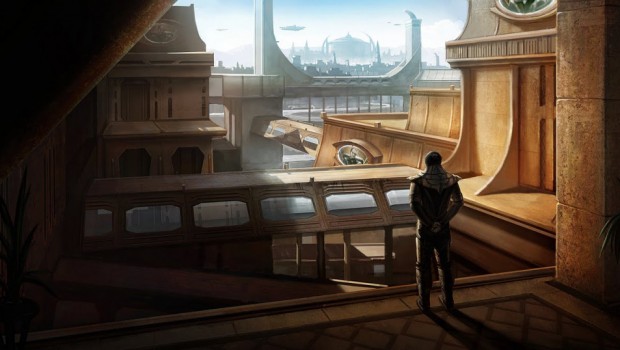
Bajoran Central Archives wins arbitration to unseal Cardassian records
ILLARA PRIME — An arbiter ruled this week that the Bajoran Central Archives has the legal right to unseal and catalogue a massive cache of Cardassian records dating back to the end of the Occupation.
Late last year, builders laying foundations for new housing development in Korto District unearthed a vault containing hundreds of Cardassian optolythic data rods. After confirming the rods’ authenticity, the Central Archives announced it would begin cataloguing the data as soon as possible. Before the work could begin, however, the Cardassian government filed an injunction to prevent the records from being unsealed.
The injunction also demanded the rods be returned to Cardassia.
“Based on the style of the rods and where they were discovered, we estimate they were in use during those final, chaotic months of the Occupation,” said Yama Toreni, Director of Acquisitions for the Bajoran Central Archives. “Hundreds of Bajorans disappeared during that time. These records could help solve those mysteries and give the families of the missing some closure.”
The Central Archives’ position is that the injunction is out of order and ignores the 2371 Bajoran–Cardassian Treaty, which established terms for the repatriation of property. The United Federation of Planets, having assumed Bajor’s treaty obligations upon the latter’s accession to the former, shares this view.
“The injunction is vexatious,” said T’Pasa of Vulcan, a Federation attorney and expert in treaty law. “The mechanism by which the Cardassian government could petition for the return of certain property is clearly spelt out in the treaty. Unfortunately for Cardassia, the window for such petitions has been closed for almost a decade.”
The Cardassians assert that, while the rods themselves may be Bajoran physical property under the law, the data contained on them remains Cardassian intellectual property, for which the treaty established different terms.
“We have no objection to the Bajorans keeping the rods,” said Nirat Kalett, Press Secretary for the Detapa Council. “Once we have protected our intellectual property, as is our right under the treaty, we will happily return the rods to Bajor.”
After the Federation and Cardassian governments failed to settle the dispute through diplomatic channels, the parties selected the Freeworlds Council, a neutral polity, to provide binding arbitration as required under the treaty. The arbitration took place on Illara Prime over four days, with the arbiter requiring an additional two days of deliberation before announcing her ruling in favour of the Bajoran position.
“The complainant’s claim is rejected,” the decision read. “Intellectual property rights as identified under the 2371 treaty do not extend to government records. Further, the argument that a physical item created solely to store data and any data thereupon contained are somehow separable is rejected. The optolythic data rods and whatever data they may or may not contain are, and shall remain, the property of the respondent.”
Bajoran historians, archivists, and politicians reacted positively to the news.
“We are delighted to hear the arbitration produced a well-reasoned and correct decision in our favour,” said Yirduk Pim, a member of the Bajoran Council of Ministers. “May the Prophets allow us to accept whatever information the records may contain with wisdom and prudence.”
The Central Archives announced a team of archivists will begin analyzing the data rods next week, but cautioned that the sheer number of records involved means that they may not be publicly accessible for several months to a year.
The Cardassians kept meticulous records of the identities, whereabouts, and actions of Bajorans during the six decades of occupation, but destroyed many of these records just prior to their withdrawal in 2369. Since then, the Central Archives has had the painstaking task of reconstructing them as part of the planet’s recovery and to help the Bajoran people reconcile a dark chapter in their history.
- Crew, residents bid farewell to Starbase 12 in emotional decommissioning ceremony - 240106.28
- Earth wins Fedevision Song Contest 2399 - 239910.01
- Archer IV power grid fails after teenager attempts to replicate replicator - 239907.22
- Planning for permanent USS Resolution memorial underway - 239905.06
- Unearthed ruins jeopardise terraforming project - 239902.18
- Currency experiment wreaks economic havoc on Ferengi colony - 239901.28
- Nan Bacco ‘grateful to be alive’ after wilderness rescue - 239812.17
- Nan Bacco missing, feared dead after runabout vanishes - 239810.22
- Nan Bacco begins 30-planet lecture tour promoting her new book - 239809.17
- Cadet hospitalizations expose stressful nature of Starfleet training simulations - 239806.25


 Previous Article
Previous Article Next Article
Next Article Ambassador Lily Ventu announces campaign for the presidency
Ambassador Lily Ventu announces campaign for the presidency  Fashion designer killed in bombing at Paris Fashion Show
Fashion designer killed in bombing at Paris Fashion Show 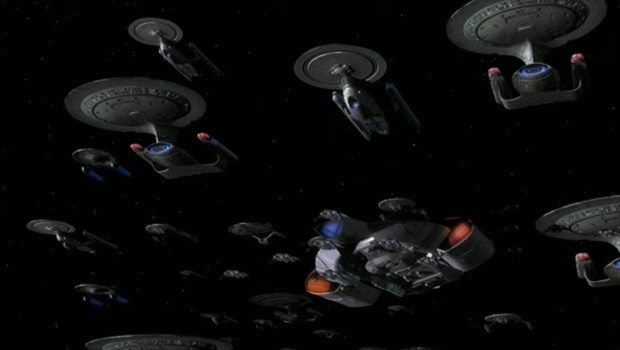 Starfleet Mission Updates: Stardate 239808
Starfleet Mission Updates: Stardate 239808 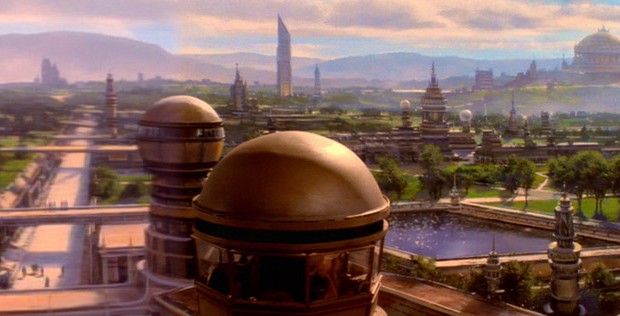 Bajor thrives three decades after Dominion War
Bajor thrives three decades after Dominion War 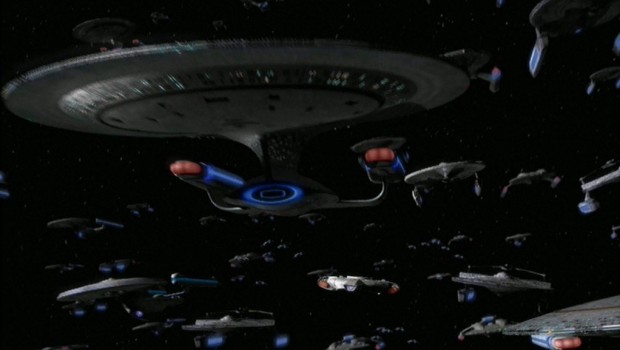 Starfleet Mission Updates: Stardate 239706
Starfleet Mission Updates: Stardate 239706 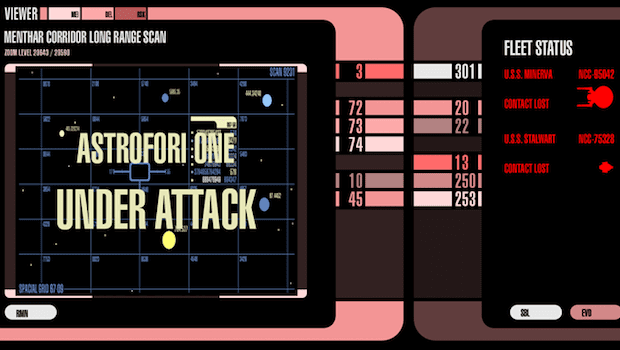 BREAKING: USS Minerva leads Federation forces against hostile Tholian fleet on approach to Astrofori 1
BREAKING: USS Minerva leads Federation forces against hostile Tholian fleet on approach to Astrofori 1  Narala wins 2392 presidential election
Narala wins 2392 presidential election